The Holiday Season: A Time for Caution and Celebration
The holiday season is often lauded as a time of joy and camaraderie, filled with celebrations and gatherings that bring individuals together. However, for those in recovery, this time of year can present added challenges that make maintaining sobriety a significant endeavor. From familiar family dynamics to the aroma of old traditions that often involve alcohol, the holiday season can be as daunting as it is delightful. For individuals committed to their recovery journey, acknowledging these trials and preparing with practical strategies is crucial to ensuring the holidays remain a safe and sober period.
Why Planning Ahead is Crucial
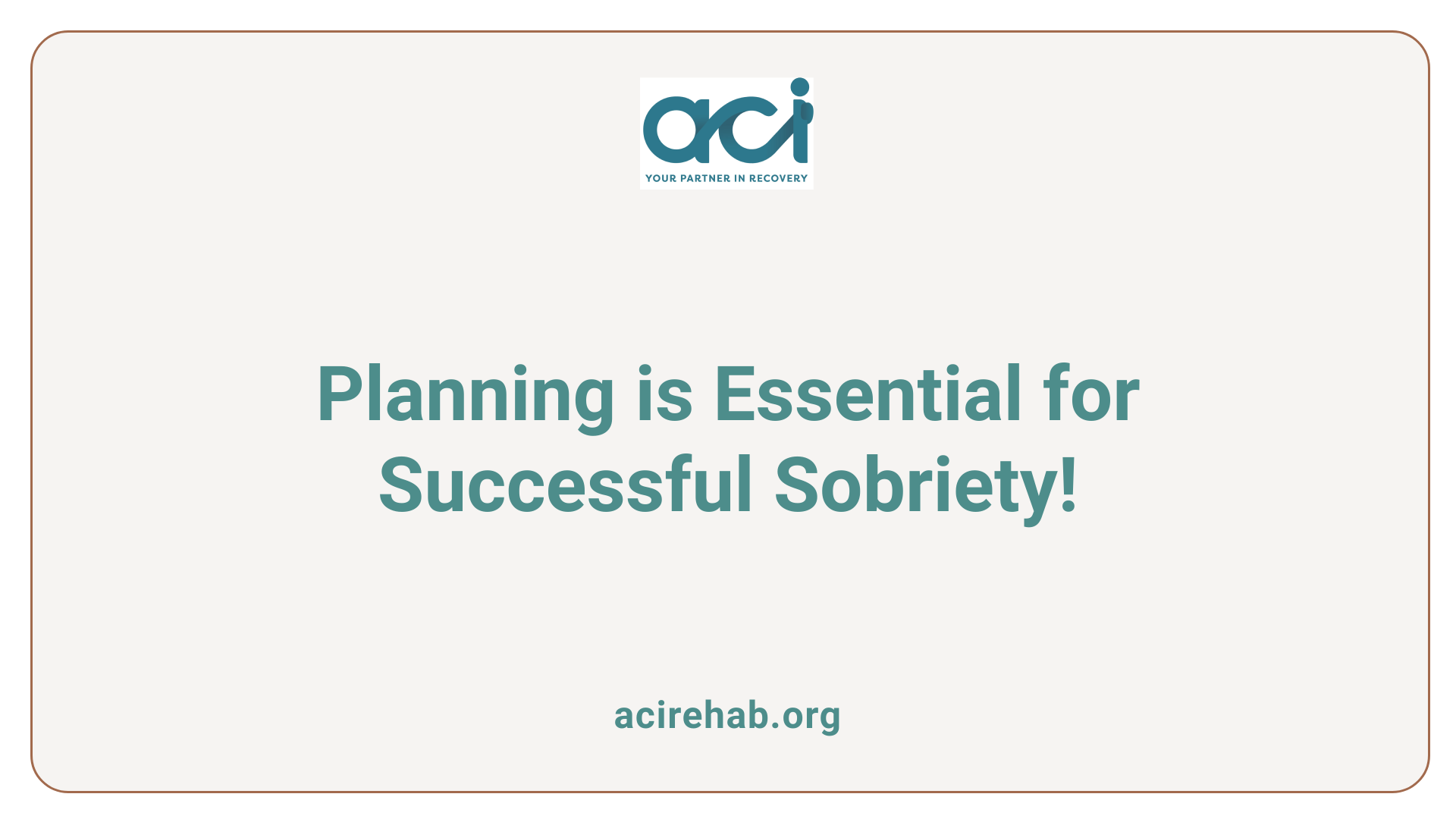
Importance of Planning
Planning ahead plays an essential role in maintaining sobriety during the holidays. Increased social gatherings and expectations can lead to overwhelming experiences that heighten the risk of relapse. Individuals must recognize potential triggers and have a structured approach to navigate these events successfully.
Creating a Support Plan
Building a support system is vital during the holiday season. This includes identifying sober friends, sponsors, or support groups to lean on. Regularly attending recovery meetings and connecting with those who share similar experiences can bolster resilience against challenges.
Developing Strategies for Triggers
Creating a personalized trigger management plan can significantly help. This may involve:
- Avoiding specific events or locations associated with past substance use.
- Arranging non-alcoholic beverages to minimize peer pressure.
- Establishing exit strategies to escape uncomfortable situations.
By being proactive and intentional about sobriety, individuals can navigate the holiday season with confidence.
Tips for Staying Sober During the Holidays
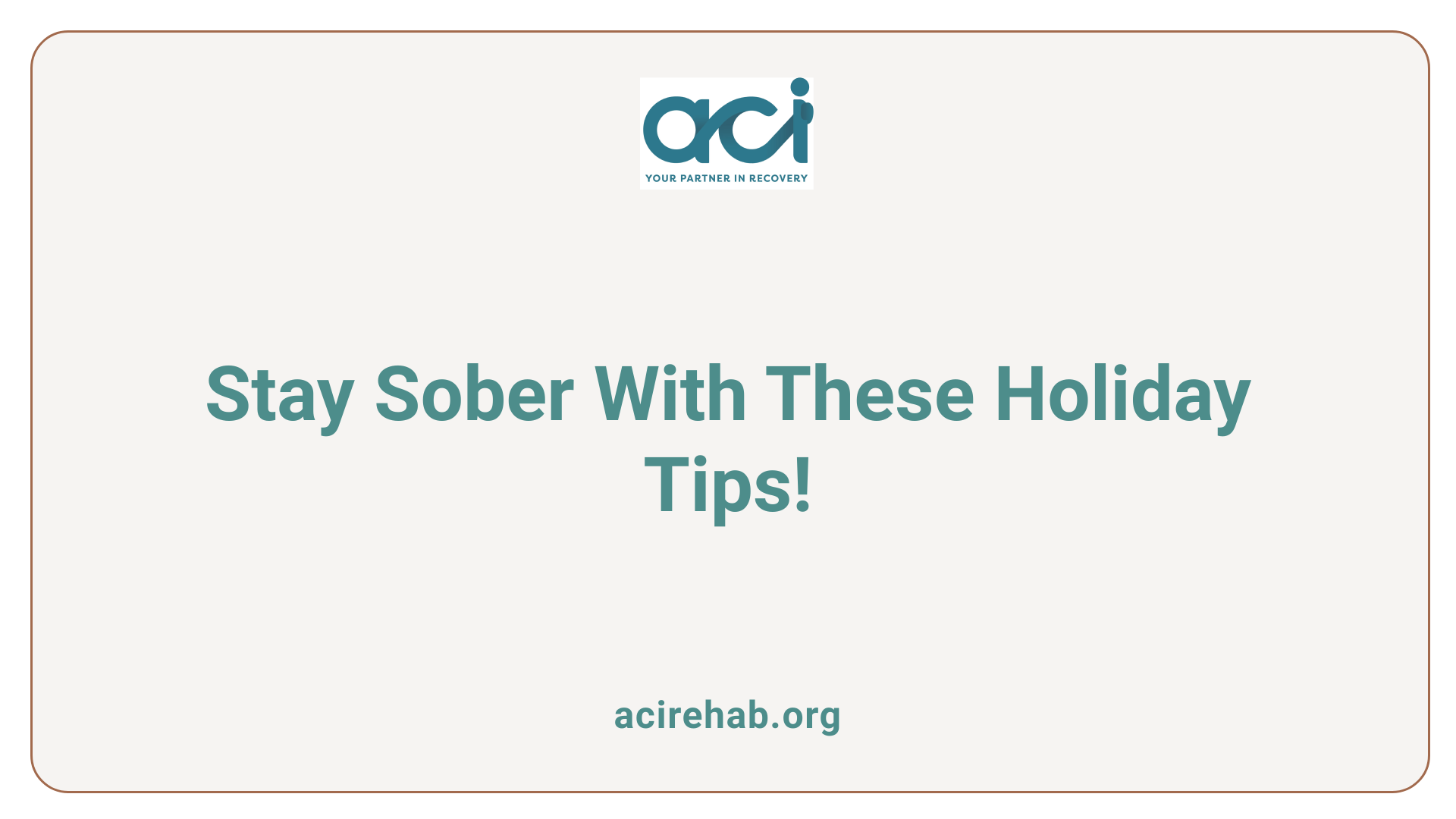
What are some tips to stay sober during the holidays?
Staying sober during the holidays can be challenging due to various stressors and triggers. Here are several tips to help maintain your sobriety:
-
Avoiding Uncomfortable Gatherings
- Be selective about the events you attend. If a gathering feels triggering, it’s okay to decline the invitation.
- Clearly communicate your boundaries with friends and family to ensure they respect your choice to remain sober.
-
Engaging in Safe Alternatives
- Replace high-risk events with enjoyable, sober activities such as volunteering, attending holiday concerts, or hosting game nights.
- Create and participate in new traditions that do not involve alcohol, promoting a healthier celebration.
-
Having a Supportive Friend
- Bring along a sober buddy to social events, as having a supportive friend can make navigating challenging situations easier.
- Prepare responses for when offered drinks, such as "I’m driving," to help gracefully decline without feeling pressured.
In summary, focusing on your recovery is essential. Practice self-care and remain connected with your support system to help you navigate the holiday season successfully.
Understanding Sober Holidays and Their Benefits
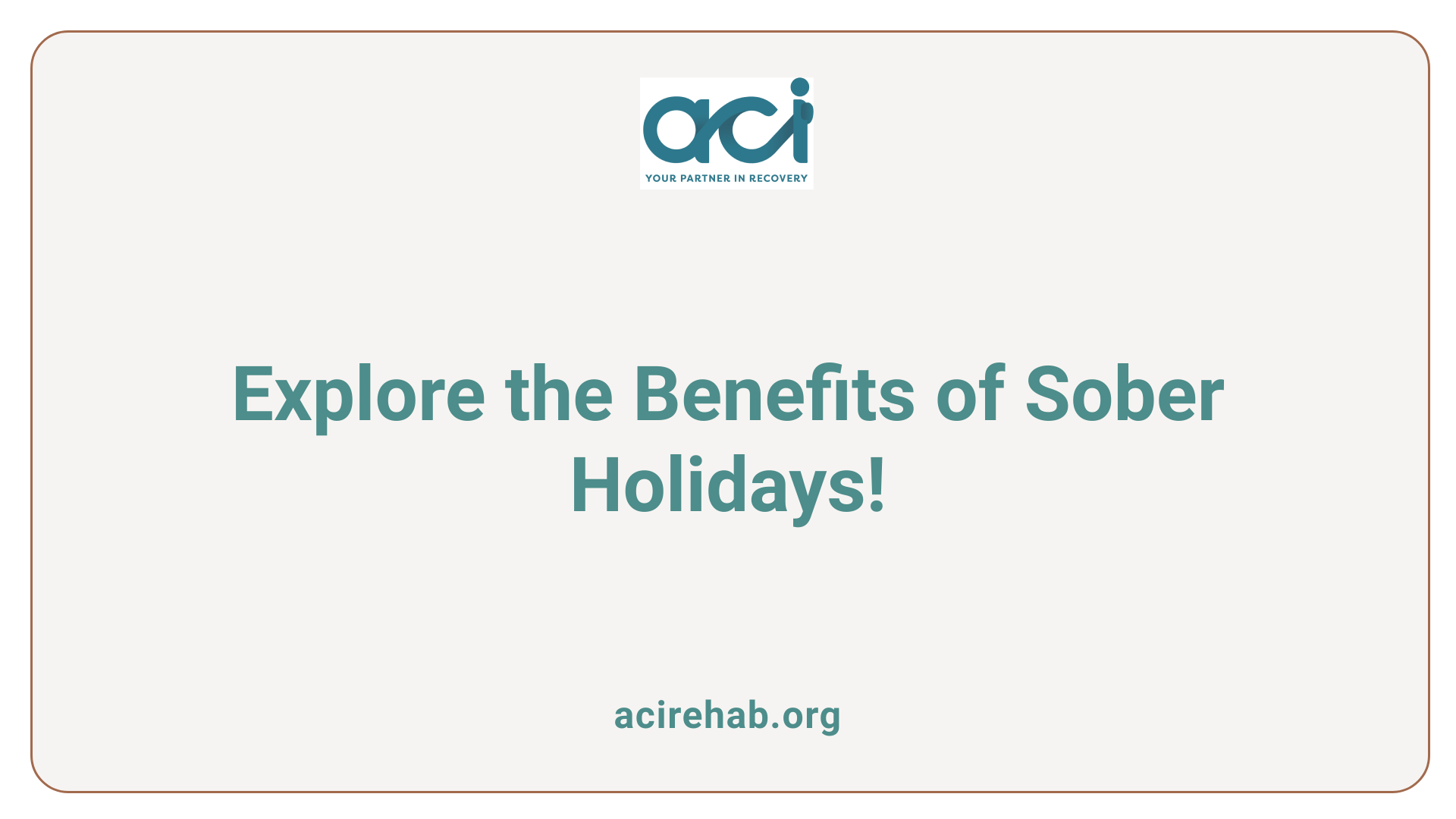
What are sober holidays and how can they help in recovery?
Sober holidays refer to vacations specifically designed for individuals recovering from substance use disorders. These retreats create an environment free from alcohol-related temptations and triggers, which is essential for maintaining sobriety.
By participating in sober holidays, individuals are often taken through structured activities promoting both mental and physical well-being. This kind of setting encourages participants to engage in hobbies, meditation, and group discussions, medical support, and recovery-focused events.
Activities that support recovery
Activities common in sober holiday retreats include:
- Outdoor adventures: Hiking, biking, or water sports promote physical well-being.
- Workshops: Focused on coping strategies, mindfulness, and creativity.
- Group therapy sessions: These offer a supportive environment to share experiences and challenges.
Building connections
A significant benefit of sober holidays is the opportunity to build connections with like-minded individuals. Establishing a strong support system—through recovery coaches or sponsors—during these trips is invaluable for navigating potential stressors. Engaging in alcohol-free social activities enhances the experience, facilitating personal growth and creating joyous memories that align with a sober lifestyle. Ultimately, sober holidays can reinforce recovery strategies, offering individuals a chance to relax and recharge without the influence of alcohol.
Support Systems and the Role of AA
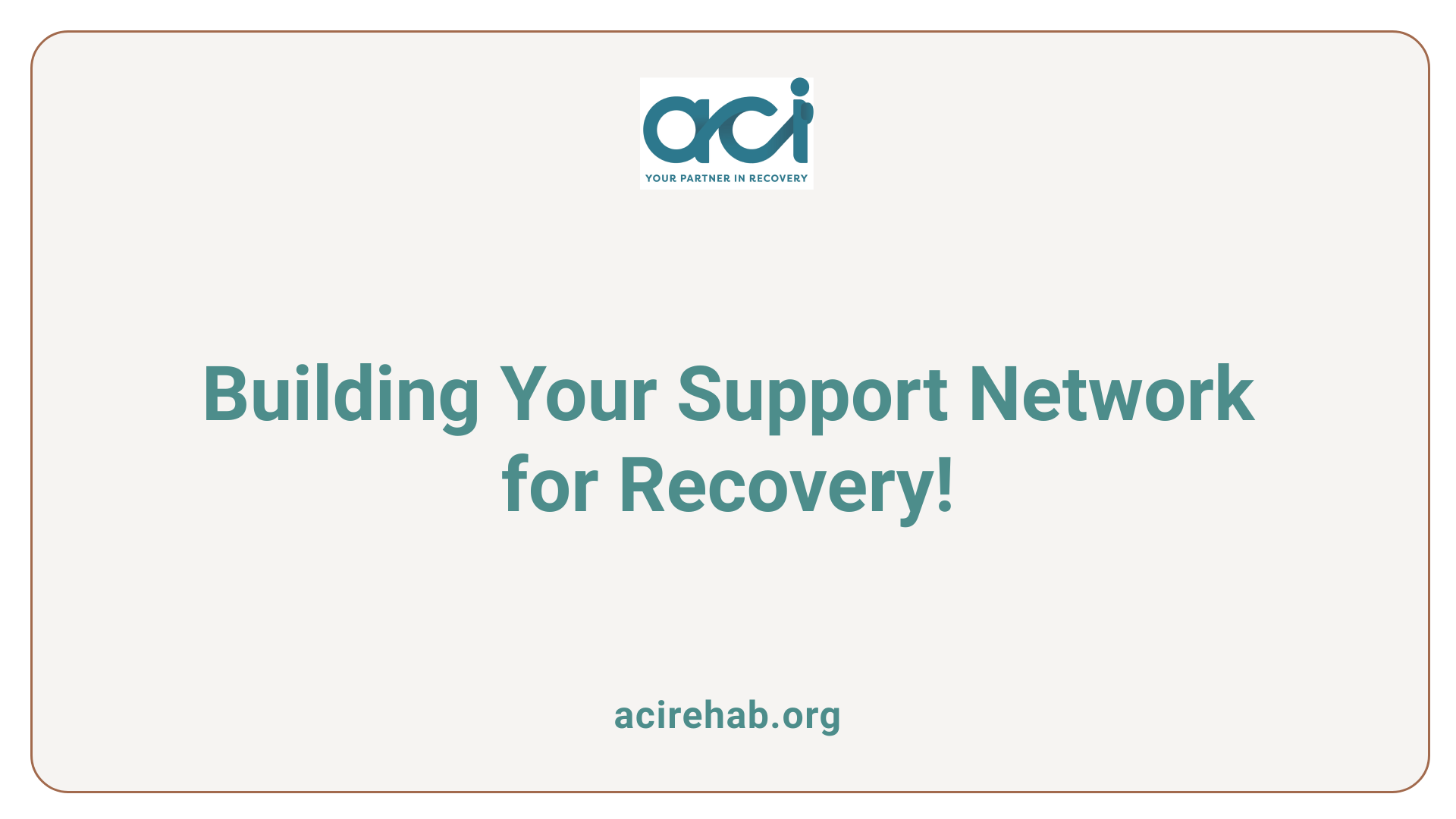
Is AA the only way to achieve sobriety?
No, AA is not the only way to achieve sobriety. While Alcoholics Anonymous provides a supportive community for many, there are numerous alternatives for those who find it isn’t the right fit for them.
Alternatives to AA
Programs like SMART Recovery emphasize motivation and coping strategies, helping individuals build tools for long-term recovery. LifeRing Recovery focuses on personal empowerment and personal responsibility without spiritual elements. The SOS Alcoholism Program offers a secular approach, allowing individuals to understand and manage their behaviors related to alcohol use. These alternatives can be just as effective and can cater to different individual needs.
Building Support Networks
In addition to formal programs, creating a robust support system is essential. This can include staying connected with family and friends, attending support groups, or participating in online forums that focus on sobriety. Continuous communication with those who understand recovery challenges, such as sponsors and counselors, fosters a consistent support network, especially during high-stress periods like holidays.
Self-Help Strategies
Self-help strategies play a critical role in maintaining sobriety. Techniques like mindfulness, journaling about feelings, and regular exercise can have a profound impact. Practicing gratitude by acknowledging personal milestones can reinforce commitment to sobriety. By recognizing their progress and implementing effective coping mechanisms, individuals empower themselves to navigate the complexities of recovery.
| Topic | Description | Benefits |
|---|---|---|
| AA | Community-based support group | Shared experiences and accountability |
| SMART Recovery | Focuses on self-empowerment and coping skills | Increased motivation |
| LifeRing Recovery | Personal responsibility-focused | Empowerment without spirituality |
| SOS | Secular approach to alcohol management | Practical understanding of behaviors |
| Self-Help | Mindfulness, journaling, gratitude | Emotional resilience |
Maintaining sobriety is a multifaceted journey, and individuals may find comfort and effectiveness in different pathways.
Self-Care: Your Armor Against Holiday Stress
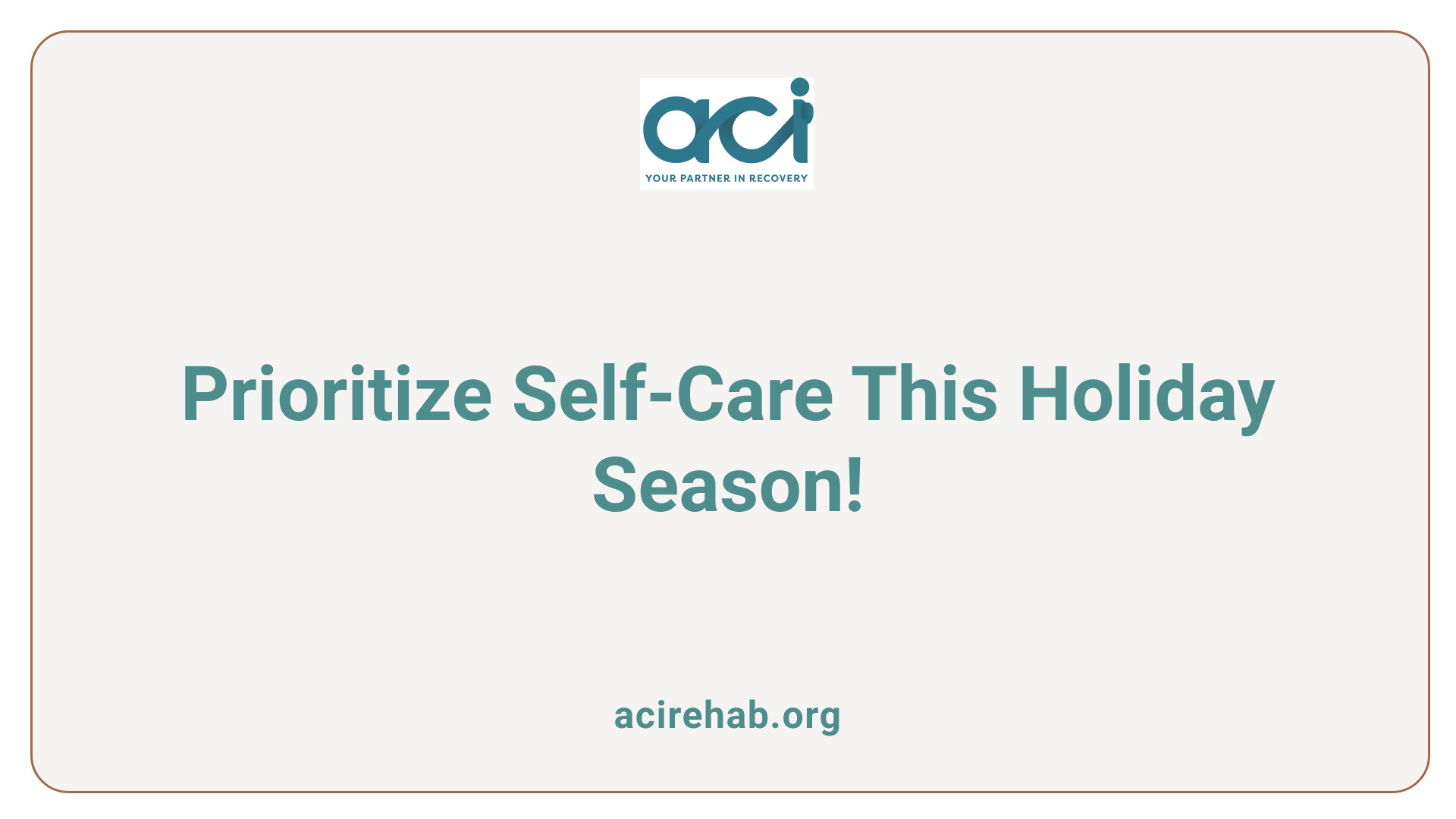
Importance of self-care
Self-care is essential for individuals in recovery, especially during the high-stress holiday season. By prioritizing your emotional and physical well-being, you can effectively manage cravings and reduce stress. Self-care practices form a protective barrier against the intense pressures that can trigger relapse.
Healthy habits
Adopting healthy habits is a vital part of maintaining sobriety. This includes:
- Proper Nutrition: Eating balanced, nutritious meals can stabilize your mood and energy levels.
- Regular Exercise: Engaging in physical activity releases endorphins, which help combat stress and anxiety.
- Adequate Sleep: Ensuring you get enough rest is crucial for maintaining emotional balance.
Emotional and physical well-being
To promote overall well-being, utilize techniques such as mindfulness and meditation. These practices help you tune into your feelings, enabling you to manage triggers effectively. Also, remember to check in with your emotions using the H.A.L.T. method (Hungry, Angry, Lonely, Tired) to identify and address potential stressors before they escalate.
Identifying and Avoiding Triggers
Common Holiday Triggers
Several factors can contribute to increased susceptibility to relapse during the holiday season. The most prevalent triggers include:
- Family dynamics: High tensions with family members can lead to stress and anxiety.
- Social drinking norms: Environments where alcohol is readily available can be challenging.
- Financial strain: The pressure of gift-giving and holiday spending can amplify stress.
- Unrealistic expectations: The desire for a perfect holiday can lead to disappointment and emotional distress.
Strategies to Manage and Avoid Triggers
Implementing proactive strategies can greatly aid in avoiding triggers:
- Create a holiday sobriety plan: Before attending events, outline your coping strategies and set boundaries.
- Practice saying no: Be prepared to decline invitations to gatherings that may compromise your recovery.
- Bring supportive friends: Attend events with someone who respects your commitment to sobriety.
- Utilize the H.A.L.T. method: Check in with your emotional states—hungry, angry, lonely, tired—to address your needs before they escalate into cravings.
Creating a Safe Environment
Establishing an environment conducive to sobriety is essential:
- Choose events carefully: Opt for those with a focus on activities rather than alcohol.
- Limit interactions: Reduce time spent with individuals who may trigger negative emotions or stress.
- Have an exit strategy: Plan how to leave an event if it becomes uncomfortable, ensuring a safe route away from triggering situations.
Understanding Success in Sobriety
What does the success rate for sobriety look like?
The success rates for sobriety can be complex and vary significantly depending on metrics and definitions of recovery. Historical statistics from Alcoholics Anonymous suggest that about 50% of individuals with alcoholism might achieve full recovery. Furthermore, an additional 25% display some degree of improvement.
However, recent studies indicate a much lower long-term abstinence rate, with estimates suggesting only approximately 3% maintain sobriety long-term. The understanding of addiction has evolved, particularly since the 1950s, when the DSM first classified alcoholism as a disease. This shift has influenced various treatment modalities and the perception of relapse.
Individual recovery journeys
Each recovery journey is unique and filled with personal challenges and victories. Factors such as support systems, personal motivations, and individual circumstances can significantly affect the course of recovery. Understanding that recovery does not follow a linear path emphasizes the need for continuous support and self-reflection. Regularly assessing emotional states and stressors can aid in recognizing potential triggers that might lead to relapse.
Role of personal accountability
Personal accountability plays a crucial role in recovery. While past models placed substantial emphasis on moral accountability, contemporary therapy increasingly focuses on individual empowerment. This includes making informed choices, setting healthy boundaries, and seeking help. Engaging with supportive communities, attending recovery meetings, and fostering transparency in communication about one’s struggles can fortify the sober journey.
| Aspect | Statistics | Notes |
|---|---|---|
| Full Recovery Rate | Approximately 50% | Varies depending on various factors. |
| Improvement Rate | About 25% | Reflects moderate success. |
| Long-term Abstinence Rate | Estimated at just 3% | Indicates the challenges in maintaining sober living. |
| Impact of Support Systems | Critical for personal journey | Support networks and ongoing communication enhance recovery. |
Taking Charge of Your Holiday Experience
Maintaining sobriety is a continuous commitment that requires vigilance, especially during the holiday season. With diligent planning, strong support systems, and a focus on self-care and new traditions, individuals can navigate this potentially stressful time successfully. Remember, sobriety is not just about avoiding substances; it’s about building a life that supports long-term recovery and personal fulfillment. Celebrate your progress and stay connected with those who champion your journey. This holiday season, make choices that honor your recovery, allowing you to enjoy the festivities without compromising your hard-earned sobriety.
References
- Tips for Staying Sober During the Holidays | Hazelden Betty Ford
- 10 Tips for Staying Sober During the Holidays
- Tips for Staying Sober During the Holidays – The Estate at River Bend
- Staying Sober and on the Path to Recovery During the Holidays
- Five Practices for Staying Sober During the Holidays – Valley Hope
- 5 Things to Remember About Sobriety During Holidays
- Tips for Staying Sober Through the Holidays – Addiction Policy Forum
- How To Get Through The Holidays While in Recovery

